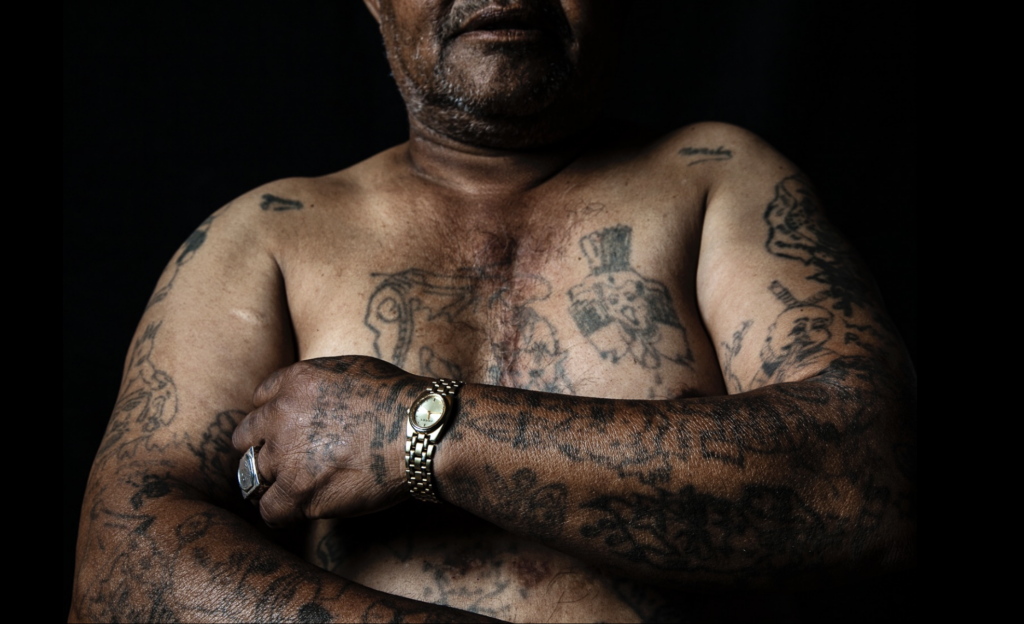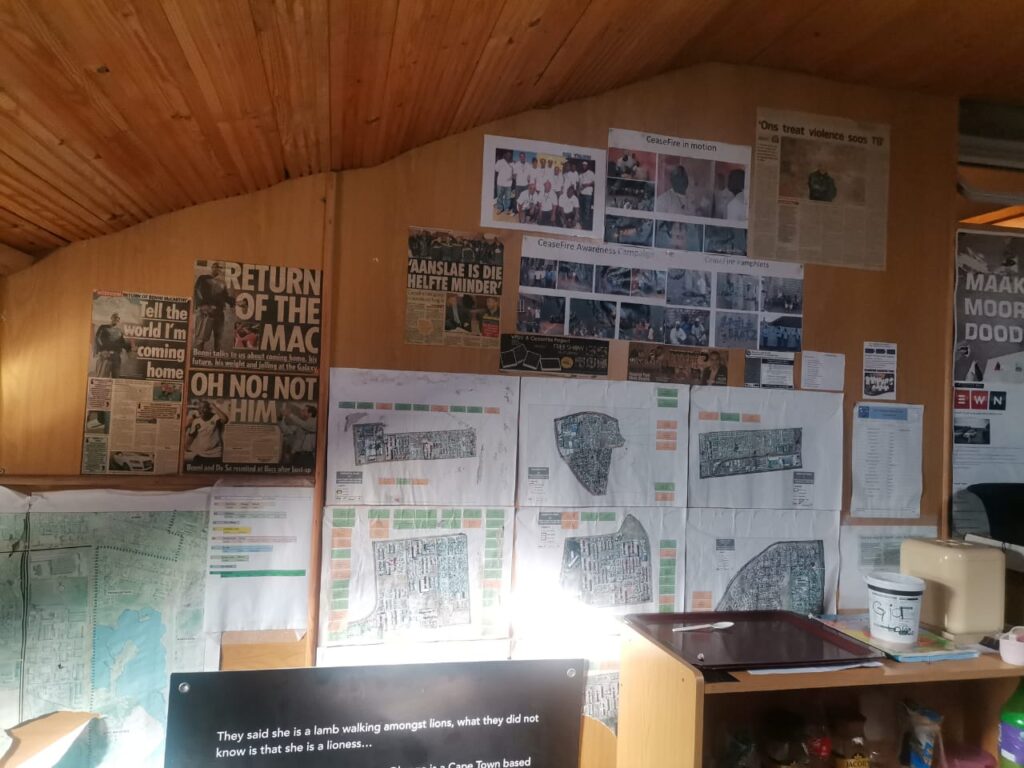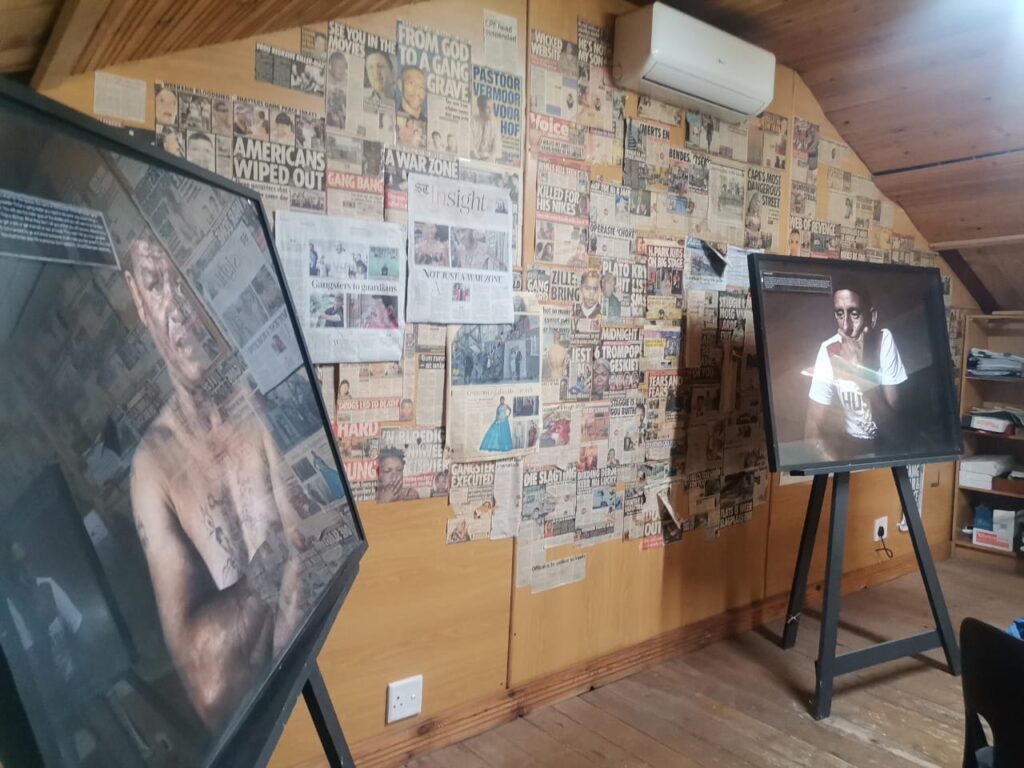Volcanoes are erupting in The Philippines, but on-fire Australia received some welcome rain. The Iran war cries have been called off and The Donald’s military powers are about to be hamstrung by the Senate. Meanwhile, his impeachment trial is starting, and we’re all on Twitter for a front-row seat.
Taking the Bold Step Out
Civic organizations in gang-riddled Cape Town are helping female gangsters exit gangs and build a better life for themselves.

Lolo, 24, and her sister Carly, 21, joined The Hard Livings gang eight years ago, when they were still teenagers. The two sisters began their initiation into gangsterism shortly after three of their brothers—Mike, Mischeck, and Mark—were murdered in gang violence on the same day.
Lolo and Carly’s father, too, was embedded in gang life. He was a high-ranking member of the same gang the brothers belonged to before he was convicted of murder and slapped with a 35-year jail sentence in 1999. Lolo and Carly’s mother passed away two years after their father went to prison.
“We joined The Hard Livings to seek revenge,” said Lolo. With a locked-in father and a buried mother, “The death of our brothers on the same day was not easy on us.”
Lolo and Carly live in Cape Town, South Africa, often described as the murder capital of the world. The unfortunate label is backed up by statistics—according to a 2020 report from the Mexican Council for Public Security and Criminal Justice, it’s the eighth most violent city in the world. The city recorded 3,065 murders among its 4.5 million people in 2020.
Cape Town is the quintessential tale of two cities. One is beautiful beyond imagining, on the slopes of Table Mountain, where the rich, the famous, and the city’s most glamorous reside. The other is overcrowded with old hostels where running water and electricity are scarce, the police need bulletproof vests, and the government deploys the army as backup. The city is the perfect symbol of the lasting legacy of apartheid, which drastically divided people by race and wealth.
Gang-related murders on the Cape Flats, an outlying area of Cape Town and the epicenter of gangsterism in South Africa, provides one explanation for the high murder rate in the city. Estimates of gang membership range between 80,000 and 100,000 members in approximately 130 gangs, responsible for up to 70% of all crimes committed within the area. While research done on gangs in South Africa has given little attention to female gangsters, they constitute a significant number, estimated at two females per gang of 10.
“The only source of protection and provision we had been exposed to was The Hard Livings,” Lolo added.
Although gang violence has long been a concern debated by academics, politicians, and communities around the world, effective solutions are still in short supply, and understanding of how people can best escape the trap of violent street culture remains limited. Popular state-backed interventions, like higher spending on policing and harsher sentences for offenders, say violence prevention experts, have not worked, and have at times contributed to the violence in a climate like the Cape Flats where distrust in government and the police force is high.
In recent years, however, a constellation of civil organizations in the Cape Flats are filling in for where state solutions have failed, testing out complex, community-based methods. Their efforts are bearing fruit, changing the lives of former female gangsters and perhaps even making a dent in crime statistics.
Gangsterism in South Africa is rooted in the social disorder that was brought about by white minority rule under apartheid. Non-white people from Cape Town’s inner city were driven from the city center under the Group Areas Act and pushed to the areas known collectively as the Cape Flats.
These disadvantaged coloured, Indian, and black working-class communities then utilized group vigilantism as a mechanism for protection from apartheid authorities and criminal groups in their areas. As the vigilante groups grew, criminal elements began to filter through their ranks, and their focus turned to organized crime.
Gradually, people leaving prisons infiltrated the groups, and vigilante groups became indistinguishable from the criminal gangs they initially aimed to eradicate. Later, the post-apartheid South Africa connected them to the transnational drug economy.
The Cape Flats is a pocket of instability wherein lawmakers and law enforcement have little to no power over the invisible girls and violent boys who own the streets in a city with the highest homicide rate, outside of war zones, in Africa.
In the Cape Flats, women are uniquely exploited by gangs, who make girls as young as 12 part of core gang activities.
Female gangsters, Lolo said, are “sometimes forced to sleep with the guys” in their own gang. “I got pregnant twice,” she continued, “not knowing who the father of the children was because I would sleep with five to six of them.”
Female gang members are often used as couriers of drugs or firearms because male police officers cannot body-search women, and female police officers are scarce. And they are sometimes expected to trap and seduce rival male gang members who may be on their gang’s hit list.
“During my six years as a female gang member of The Junky Funky Kids gang, I did things that I am not proud of,” said Jane, another former gang member. “I lured a number of rivals and exposed them so that they could be eliminated.”
These trials left both emotional and practical marks on the women. Jane “eventually became tired of such evil,” she said, referring to exposing rival gang members.
As for Lolo, “When my little sister also got pregnant,” she said, “that’s when we decided to quit. It was adding on to our woes, because now we had children to take care of.”
Lolo, her sister, Carly, and Jane all left gang life with the help of a local NGO, CeaseFire, that was established in 2008 in the Hanover area of the Cape Flats. The organization works with former gang members to help those willing to exit gang life and keep the rivalry among the gangs in check.
Jane, for instance, missed death by a hair in 2019 when the government declared a state of emergency in Cape Town and deployed the army following weeks of street fights. During the chaos, she was shot in the left arm.
“The soldiers did not help in any way,” she said. “The real cease-fire came through CeaseFire.” The organization deployed violence interrupters, who facilitated non-aggression agreements between the rival gangs.

CeaseFire’s headquarters, which has maps of the area so that the organization can plan their efforts
CeaseFire’s successes have been attributed partly to their decision to hire what CeaseFire’s projects administrator Albert Matthews calls “culturally appropriate workers”—ones who “live in the community, are known to high-risk people, and have possibly even been gang members or spent time in prison, but have made a change in their lives and turned away from crime,” he said.
They are possibly the only people able to do the job. “A policeman or a soldier cannot convince a gang member out,” explained Letwin, a former gang member who now works for CeaseFire. “They are considered as enemies.”
A policeman or a soldier cannot convince a gang member out. They are considered as enemies.
Letwin, who joined CeaseFire three years ago, is now devoted to fishing young girls out of gang life. She has helped more than 30 girls do so by educating them about what she called the advantages of a “clean and free life.”
Once an individual decides to leave a gang, however, they are likely to face an array of challenges, from drug addiction—most of the gang members are also drug addicts, said Letwin—to a lack of employment opportunities to threats from the gangs they formerly belonged to.
“It is crucial that there are continuous interventions and a network that offers both practical and emotional support,” Matthews said. This includes job-readiness training, mental health assistance, and facilitating the provision of safe homes to former gang members whose lives could be in danger.

Albert Matthews of CeaseFire calls where they work their “war room.” It’s decorated with newspaper clippings of gang violence and photographs of the organization’s “interruptors.”
Lolo and Carly, for example, quit the Bad Boys for good after attending a number of programs and workshops conducted by CeaseFire.
“We knew, however, that it was not going to be easy,” said Lolo. “We needed protection.” They also needed a job, a challenge given South Africa’s worsening unemployment rates.
Lolo finally managed to find employment with the help of The Message Trust, a church organization based in Cape Town that was established in 2014 to help ex-offenders, including gang members, reintegrate into society by offering alternative futures for them and their families. (The Message Trust is supported by The Resilience Fund.)
In 2020, The Message Trust opened The Oaks, a home providing accommodation and religious mentorship to former gangsters and ex-offenders. Lolo, together with her children, now stays there, and works as a waiter in the canteen.
“Getting that job was a milestone for me,” Lolo said. “The government must know that finding employment and a meaningful job is really a way one can exit a gang, not arresting us.”
These organizations, of course, are up against dramatic crime statistics. But their approach seems to have opened up a drip of change.
“Numbers of quitters have gone up now,” CeaseFire administrator Matthews said. In the three-month period between December 2021 and February 2022, 27 people dedicated themselves to quitting. And Message Trust reports that the number of youth seeking rehabilitation facilities has increased by 7% over the past two years.
On a wider scale, too, there has been improvement. Minister of Police Beki Cele confirmed that “crime is stabilizing,” although he could not attest that that credit is due to the efforts of civic organizations like CeaseFire and Message Trust.
Western Cape province, home to the gang-troubled city of Cape Town, was the only province to record a decrease in its murder cases between July and September 2021.
In July 2021, it happened that the premier of the province, the mayor, police leadership, and representatives from various civic organizations met in order “to enhance the safety of the city,” said Cele, “working together rather than working against each other. I think we are on the good path of making this city much safer.”
What exactly that path looks like, however, is still in dispute. Cele believes that policing efforts would be “quite meaningful” if a range of socio-economic factors, such as school attendance, were better addressed.
According to Dariusz Dziewanski from the Centre of Criminology at the University of Cape Town’s Faculty of Law, however, gang prevention strategies that rely on hard policing are only likely to undermine rehabilitation and reintegration. It’s better, he said, to fight gangs through “disengagement initiatives that help connect people to non-gang groups and practices,” and to “tackle structural drivers of gang participation, like poverty, inequality, economic insecurity, and social exclusion.”
Mama Africa of the Americans gang, a single mother, said she joined the gang due to chronic unemployment.
“I had my fair share of violent encounters,” she said of her time in gang life. “I once stabbed the wife of a rival gang leader who had shot at my son, and I have also fought with the police. But a time comes when you need to be away from that violence. Getting in is easy, but getting out is hard.”
A time comes when you need to be away from that violence. Getting in is easy, but getting out is hard.
Alan Winde, Premier for Western Cape Province, said Cape Town was at a critical juncture when it comes to the economic empowerment of young people.
“We are working with civic organizations to further ensure that we empower our young people with the necessary skills that create work opportunities, and this approach is already yielding results,” said Winde.
In Mama Africa’s case, she managed to disengage from gangs with the help of community-based interventions by Cease Fire. For her, church activities offered by Cease Fire in collaboration with various church leaders played a major role in helping her to live a clean life. She has now become a legal assistant, arranging bail for gangsters.
The story of Cape Flats and narratives by former female gang members are evidence that something is working in the efforts to build community eresilience. But a lot more could be achieved.
Speaking about the latest crime statistics, Minister of Police Cele said “we would have loved to see the figures dropping even further.”
The work being done by civic organizations in the Cape Flats could yield much more positive results, said representatives for The Global Initiative against Transnational Organized Crime, if they create a network to work together with others who believe in the same cause. Other than CeaseFire and The Message Trust, organizations like the Western Cape Religious Leaders Forum, The Bright Life Foundation, and The Open Society Foundation are all operating in the area.
“All these organizations, groups, and state departments should be strengthened through collaboration,” said Mark Shaw, director of Global Initiative.
For now, those who have gotten out are often creating their own personal networks of help, turning around to extend a hand to the women still stuck in gang life.
“To survive in the tough environment at the Cape Flats, you also need to be tough. After being left alone with a little sister to look after, I thought the only way out was to join a gang. But after spending many years inside, I then realized it was only making things worse,” Lolo said.
She views her new job at The Message Trust’s canteen not only as a stepping stone for herself, but also as an “opportunity to advise other young people on taking the bold step out of gang life.”


